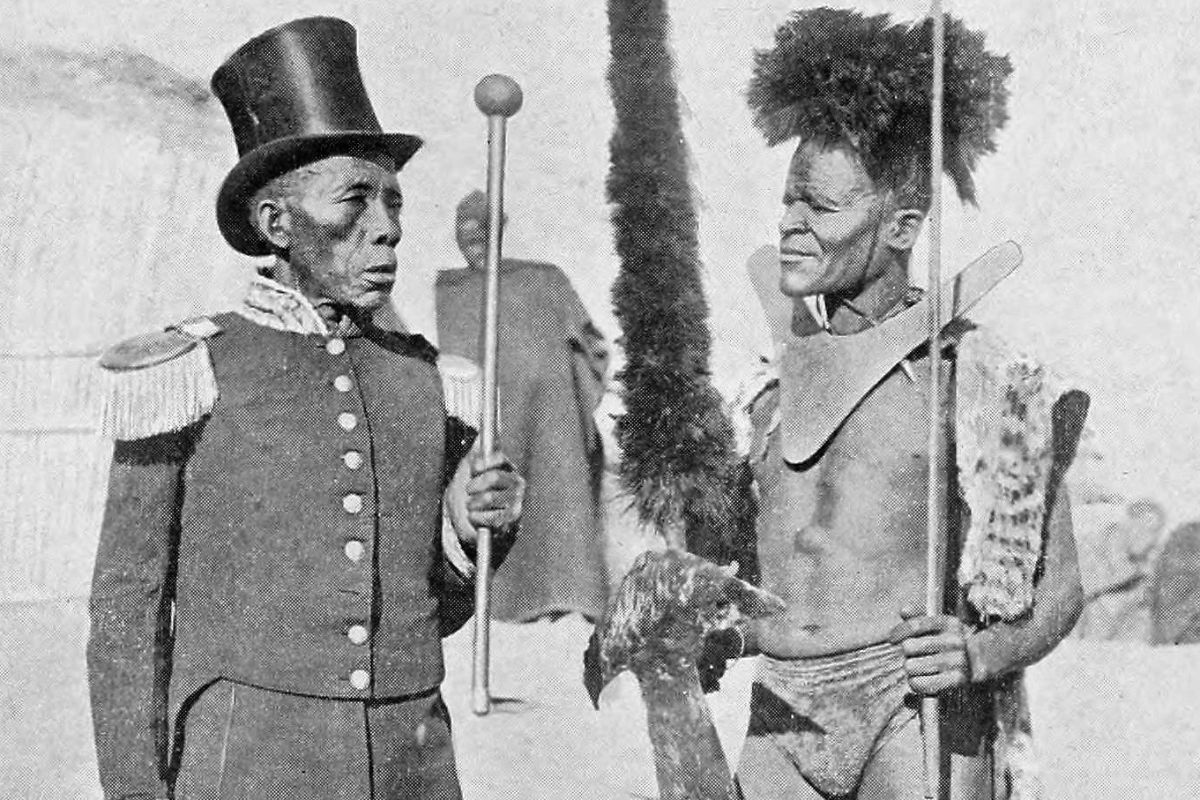
What was the Basuto Gun War? The Basuto Gun War was a conflict between the Basotho people and the British Cape Colony from 1880 to 1881. This war erupted when the British tried to disarm the Basotho under the Disarmament Act. The Basotho, led by Chief Lerotholi, resisted fiercely, valuing their firearms for hunting and protection. The war saw intense battles, with the Basotho using their knowledge of the mountainous terrain to their advantage. Despite the British having superior weaponry, the Basotho's determination and strategic prowess led to a stalemate. Eventually, the British abandoned the disarmament policy, allowing the Basotho to keep their guns. This conflict highlighted the Basotho's resilience and desire for autonomy.
Key Takeaways:
- The Basuto Gun War was a 19th-century conflict between the Basotho people and the British Cape Colony over firearms, showcasing Basotho resistance and unity.
- The war solidified Basotho national identity, highlighted the importance of firearms, and inspired other African groups to resist colonial disarmament efforts.
What Was the Basuto Gun War?
The Basuto Gun War was a conflict in the late 19th century involving the Basotho people and the British Cape Colony. It was primarily about the control and ownership of firearms.
- The Basuto Gun War took place between 1880 and 1881.
- The conflict was sparked by the Cape Colony's attempt to disarm the Basotho people.
- The Basotho people, led by Chief Moshoeshoe I, resisted the disarmament efforts.
- The war is also known as the Basuto War or the Gun War.
Key Figures in the Basuto Gun War
Several important individuals played significant roles in the Basuto Gun War, shaping its course and outcome.
- Chief Moshoeshoe I was the leader of the Basotho people during the war.
- Sir Bartle Frere was the British High Commissioner for Southern Africa at the time.
- General Charles Clarke led the British forces against the Basotho.
- Many Basotho chiefs, including Lerotholi and Masopha, played crucial roles in the resistance.
Causes of the Basuto Gun War
Understanding the reasons behind the conflict helps to grasp its significance and impact.
- The Cape Colony's Disarmament Act of 1879 aimed to confiscate firearms from the Basotho.
- The Basotho people relied heavily on firearms for hunting and protection.
- The disarmament policy threatened the Basotho's way of life and sovereignty.
- Tensions between the Cape Colony and the Basotho had been simmering for years.
Major Battles and Events
Several key battles and events defined the Basuto Gun War, showcasing the determination and resilience of the Basotho people.
- The Battle of Qalabani was one of the first major confrontations in the war.
- The Siege of Thaba Bosiu saw the Basotho successfully defending their stronghold.
- The Battle of Berea was a significant victory for the Basotho forces.
- The war ended with the signing of the Treaty of Aliwal North in 1881.
Impact on the Basotho People
The Basuto Gun War had lasting effects on the Basotho people, influencing their society and future relations with colonial powers.
- The war solidified the Basotho's sense of national identity and unity.
- The Basotho retained their firearms, a symbol of their resistance and autonomy.
- The conflict strained relations between the Basotho and the Cape Colony.
- The Basotho people faced economic hardships due to the war's disruption.
Legacy of the Basuto Gun War
The Basuto Gun War left a lasting legacy, shaping the history and culture of the Basotho people and the region.
- The war is remembered as a symbol of Basotho resistance and resilience.
- It highlighted the importance of firearms in Basotho society.
- The conflict influenced subsequent colonial policies in Southern Africa.
- The Basuto Gun War is commemorated in Basotho oral traditions and folklore.
Interesting Facts About the Basuto Gun War
Here are some lesser-known but fascinating facts about the Basuto Gun War that shed light on its unique aspects.
- The Basotho used guerrilla tactics to outmaneuver the British forces.
- The war saw the use of traditional Basotho weapons alongside modern firearms.
- Women played supportive roles, providing supplies and intelligence to the Basotho fighters.
- The Basotho's knowledge of the terrain gave them a strategic advantage.
- The war inspired other African groups to resist colonial disarmament efforts.
- The Basuto Gun War is considered one of the last significant armed resistances against colonial rule in Southern Africa.
The Lasting Impact of the Basuto Gun War
The Basuto Gun War left a significant mark on Lesotho's history. It wasn't just a conflict over firearms; it was a struggle for independence and identity. The war highlighted the resilience and determination of the Basotho people. Their fight against colonial forces showcased their desire to maintain sovereignty and cultural heritage.
The aftermath of the war saw Lesotho navigating its path in a changing world. The conflict influenced future political decisions and alliances. It also served as a reminder of the importance of unity and resistance against external pressures.
Understanding the Basuto Gun War provides valuable insights into the complex history of Southern Africa. It underscores the enduring spirit of a nation determined to protect its freedom and way of life.
Frequently Asked Questions
Was this page helpful?
Our commitment to delivering trustworthy and engaging content is at the heart of what we do. Each fact on our site is contributed by real users like you, bringing a wealth of diverse insights and information. To ensure the highest standards of accuracy and reliability, our dedicated editors meticulously review each submission. This process guarantees that the facts we share are not only fascinating but also credible. Trust in our commitment to quality and authenticity as you explore and learn with us.
